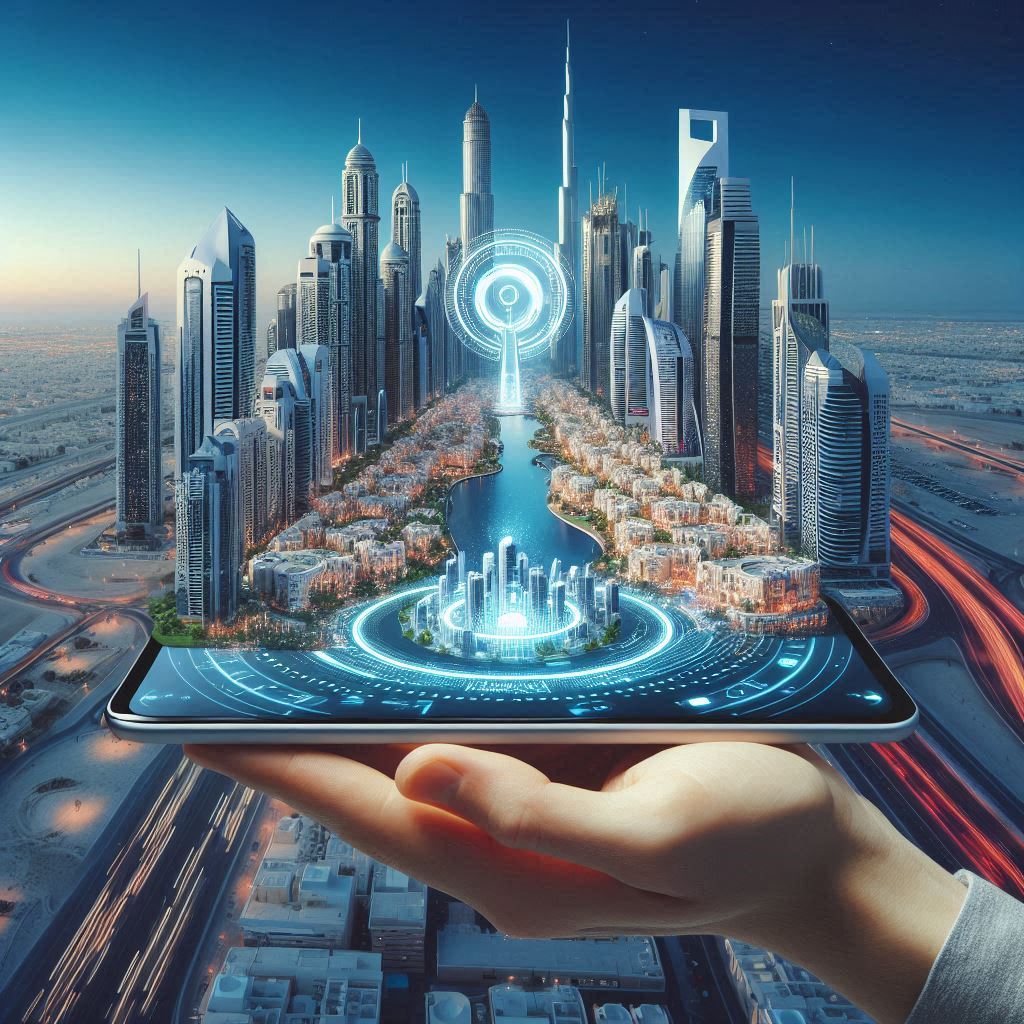Dubai, often hailed as the City of the Future, is leading the charge in leveraging Artificial Intelligence (AI) to transform urban living. With its ambitious Smart City Plan, Dubai has placed cutting-edge technology at the heart of its development strategy. AI plays a pivotal role in achieving Dubai’s vision of becoming one of the most advanced and sustainable cities in the world. This blog explores the profound impact of AI on Dubai’s smart transformation, its role in fostering startups, and its integration across various sectors.
Dubai’s Vision for a Smart City
Dubai’s Smart City Plan aims to revolutionize how citizens, businesses, and government interact. The overarching goal is to make Dubai a happier and more efficient city by 2030. This plan focuses on six pillars:
- Smart Economy
- Smart Living
- Smart Environment
- Smart People
- Smart Mobility
- Smart Governance
AI is the backbone of many initiatives under this vision. By harnessing AI, Dubai plans to streamline public services, optimize resources, and deliver innovative solutions to improve the quality of life for residents and businesses.
AI in Public Services
Smart Government Services
AI is at the forefront of Dubai’s government transformation. The Dubai Government utilizes AI-powered platforms such as DubaiNow, which provides over 130 government services through a single app. From paying utility bills to renewing trade licenses, AI ensures quick and seamless access for citizens.
Additionally, Dubai’s Smart Police Stations operate without human intervention, offering 24/7 services with advanced AI algorithms for facial recognition and crime prevention.
Healthcare Advancements
AI-powered healthcare systems are transforming medical services in Dubai. The Dubai Health Authority (DHA) has integrated AI to predict patient needs, manage resources, and optimize hospital workflows. AI tools also enhance diagnostics, enabling faster and more accurate detection of diseases such as cancer and diabetes.
AI and Urban Mobility
Smart Transportation
Dubai is reimagining urban mobility with AI. The Roads and Transport Authority (RTA) uses AI to analyze traffic patterns, reduce congestion, and enhance road safety. AI systems power Dubai’s autonomous taxis and buses, a vital part of its commitment to sustainable transportation.
Hyperloop and Drone Taxis
Pioneering futuristic travel, Dubai has tested AI-driven projects like the Hyperloop and drone taxis, aiming for faster and safer commuting options. These innovations reflect Dubai’s commitment to integrating AI into every facet of mobility.
AI in Sustainability and Resource Management
Dubai’s sustainability initiatives heavily rely on AI to optimize energy usage and reduce waste. The city’s smart grids, powered by AI, monitor and manage energy consumption in real-time. AI also plays a crucial role in water management systems, ensuring efficient usage and reducing wastage.
The Dubai Electricity and Water Authority (DEWA) has implemented AI solutions to predict energy demand and integrate renewable energy sources into its grid, aligning with the city’s goal of becoming a carbon-neutral economy.
AI-Driven Economy and Startups
Dubai’s economy thrives on innovation, and AI is a key enabler. The city has become a hub for startups specializing in AI solutions, thanks to initiatives like the Dubai Future Accelerators program. This program connects startups with government entities to co-create solutions addressing real-world challenges.
The Dubai AI Lab, launched by Smart Dubai, focuses on fostering innovation by developing AI tools and solutions for businesses and government sectors. By integrating AI into its economy, Dubai not only creates jobs but also positions itself as a global leader in technological advancements.
Smart Living: AI in Everyday Life
AI in Real Estate
Dubai’s real estate sector has embraced AI to enhance customer experiences. AI tools analyze market trends, predict property values, and personalize recommendations for buyers and investors. Smart buildings equipped with AI systems automate energy usage, improve security, and provide personalized services to residents.
Retail and Tourism
AI enhances Dubai’s retail and tourism sectors. AI chatbots assist tourists by offering real-time information about attractions, while predictive analytics ensure personalized shopping experiences. For example, Dubai Mall integrates AI to optimize foot traffic and improve customer satisfaction.
Challenges and Opportunities
While Dubai’s integration of AI is remarkable, challenges remain.
- Data Privacy: With AI heavily reliant on data, ensuring the privacy and security of citizen data is crucial.
- Skill Gaps: As AI advances, a skilled workforce is essential to maximize its potential. Dubai is addressing this through educational programs focusing on AI and technology.
Despite these challenges, the opportunities outweigh the risks. AI enables Dubai to lead the global race in smart city development, attracting investment, fostering innovation, and improving overall quality of life.
Dubai’s AI Future
Dubai’s commitment to AI is evident through its initiatives, such as the UAE Strategy for Artificial Intelligence 2031. This strategy aims to position the UAE as a global leader in AI by integrating it across all sectors, from government to business.
Dubai’s embrace of AI reflects its determination to stay ahead in the global technological landscape. As AI continues to evolve, Dubai’s Smart City Plan will serve as a model for cities worldwide seeking to achieve sustainable and efficient urban development.
Conclusion
Artificial Intelligence is the driving force behind Dubai’s transformation into a global smart city. From revolutionizing public services to enhancing mobility, sustainability, and the economy, AI is reshaping the urban landscape. By fostering startups, embracing innovation, and addressing challenges, Dubai is paving the way for a future that seamlessly blends technology with everyday life.
With its bold vision and unwavering commitment, Dubai stands as a beacon of what’s possible when AI and ambition converge.
